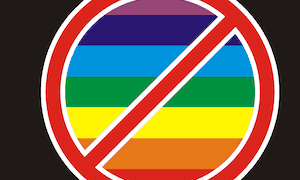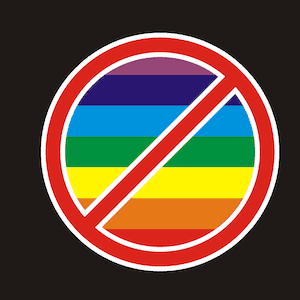Ghana’s parliament has passed a stringent new bill criminalizing LGBTQ+ individuals, marking a significant shift in the nation’s stance on LGBTQ+ rights. The bill imposes harsh penalties, including up to three years in prison for self-identifying as LGBTQ+ and up to five years for forming or supporting LGBTQ+ groups.
Efforts to replace prison sentences with community service and counseling were thwarted by lawmakers, indicating widespread support for punitive measures.
This legislative move reflects a growing opposition to LGBTQ+ rights in Ghana, a conservative West African nation. Gay sex is already illegal in Ghana, punishable by a three-year prison term. The bill has garnered support from both major political parties and awaits President Nana Akufo-Addo’s signature to become law, with the president previously stating he would adhere to the will of the majority.
Critics, including Amnesty International and UN officials, have voiced concerns about the bill’s potential impact on LGBTQ+ individuals’ fundamental rights and freedoms. They fear increased persecution, violence, and discrimination against LGBTQ+ individuals and their allies.
“If Human Sexual Rights and Ghanaian Family Values Bill becomes a law, it will exacerbate fear and hatred, could incite violence against fellow Ghanaian citizens, and will negatively impact on free speech, freedom of movement and freedom of association.” head of the UN body tackling Aids, Winnie Byanyima said.
She added that it would “obstruct access to life-saving services” and “jeopardize Ghana’s development success.”
Additionally, the bill proposes severe penalties for LGBTQ+ advocacy campaigns targeting children and encourages public reporting of LGBTQ+ individuals for punitive action.
The bill’s genesis traces back to the opening of Ghana’s first LGBTQ+ community center in 2021, which sparked public protests and was subsequently shut down by authorities under pressure from religious and traditional leaders. The bill, although revised from an earlier draft, still faces criticism for its punitive measures and potential infringement on rights.
At the time, the Christian Council of Ghana and the Ghana Pentecostal and Charismatic Council said in a joint statement that being LGBTQ+ was “alien to the Ghanaian culture and family value system and, as such, the citizens of this nation cannot accept it”.
During parliamentary debates, there were attempts to amend the bill to offer alternative sentencing options, but proponents of prison sentences prevailed. This indicates a prevailing sentiment among lawmakers in favor of punitive measures against LGBTQ+ individuals. The parliamentary leader of the governing party, Alexander Afenyo-Markin, suggested further changes.
He said lawmakers should decide, via a secret ballot, whether people convicted of being members of the LGBTQ+ community should be imprisoned by the courts or ordered to do community service and undergo counselling.
However, he was heckled into submission by lawmakers who supported prison sentences.
Overall, Ghana’s passage of this bill marks a significant development in the country’s LGBTQ+ rights landscape, reflecting broader societal attitudes and political dynamics.

































